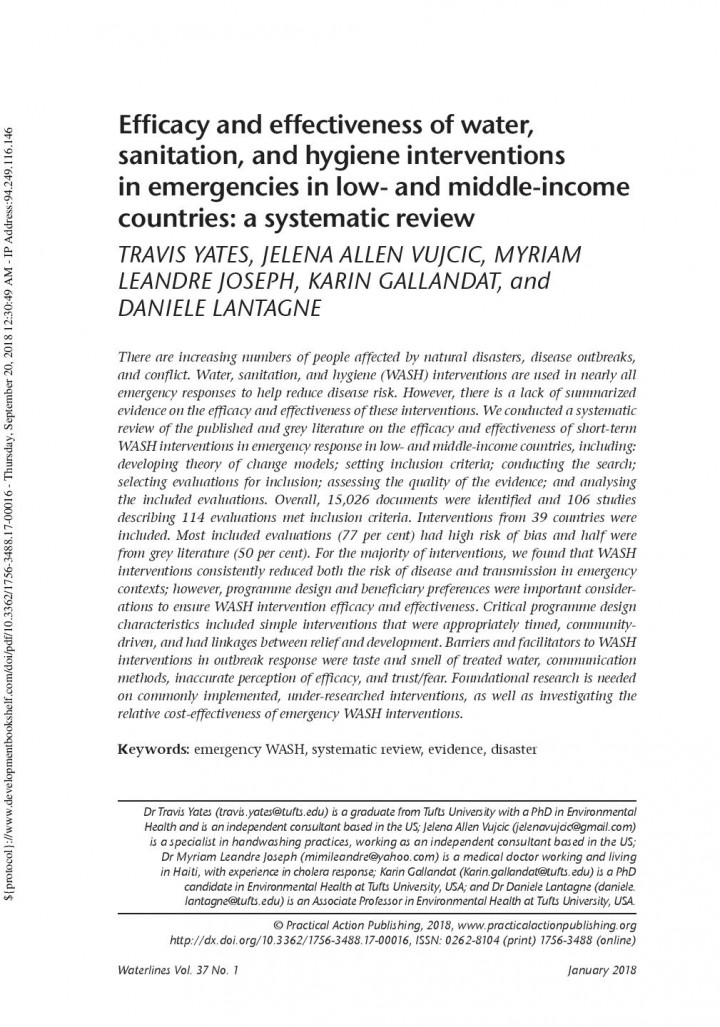Efficacy and effectiveness of water, sanitation, and hygiene interventions in emergencies in low- and middle-income countries - a systematic review
Yates, T., Vujcic, A., Joseph, M. L., Gallandat, K., Lantagne, D. (2018)

Published in: 2018
Pages: 35
Publisher:
Practical Action Publishing, doi.org/10.3362/1756-3488.17-00016, USA, ISSN: 1756-3488
Author:
Yates, T., Vujcic, A., Joseph, M. L., Gallandat, K., Lantagne, D.
Uploaded by:
Lara Nassar
1559 Views
120 Downloads
There are increasing numbers of people affected by natural disasters, disease outbreaks, and conflict. Water, sanitation, and hygiene (WASH) interventions are used in nearly all emergency responses to help reduce disease risk. However, there is a lack of summarized evidence on the efficacy and effectiveness of these interventions. We conducted a systematic review of the published and grey literature on the efficacy and effectiveness of short-term WASH interventions in emergency response in low- and middle-income countries, including; developing theory of change models; setting inclusion criteria; conducting the search; selecting evaluations for inclusion; assessing the quality of the evidence; and analysing the included evaluations. Overall, 15,026 documents were identified and 106 studies describing 114 evaluations met inclusion criteria. Interventions from 39 countries were included. Most included evaluations (77 percent) had a high risk of bias and half were from grey literature (50 percent). For the majority of interventions, we found that WASH interventions consistently reduced both the risk of disease and transmission in emergency contexts; however, programme design and beneficiary preferences were important considerations to ensure WASH intervention efficacy and effectiveness. Critical programme design characteristics included simple interventions that were appropriately timed, community-driven, and had linkages between relief and development. Barriers and facilitators to WASH interventions in outbreak response were taste and smell of treated water, communication methods, inaccurate perception of efficacy, and trust/fear. Foundational research is needed on commonly implemented, under-researched interventions, as well as investigating the relative cost-effectiveness of emergency WASH interventions
Bibliographic information
Yates, T., Vujcic, A., Joseph, M. L., Gallandat, K., Lantagne, D. (2018). Efficacy and effectiveness of water, sanitation, and hygiene interventions in emergencies in low- and middle-income countries - a systematic review. Practical Action Publishing, doi.org/10.3362/1756-3488.17-00016, USA, ISSN: 1756-3488
Filter tags
Camps (emergency or longer term) Educators English Factsheets and policy briefs Journalists Politicians and local decision makers Practitioners Water (irrigation, process, other)















